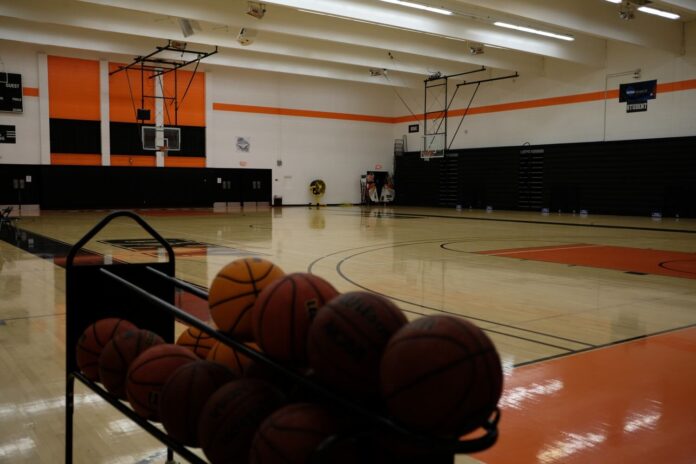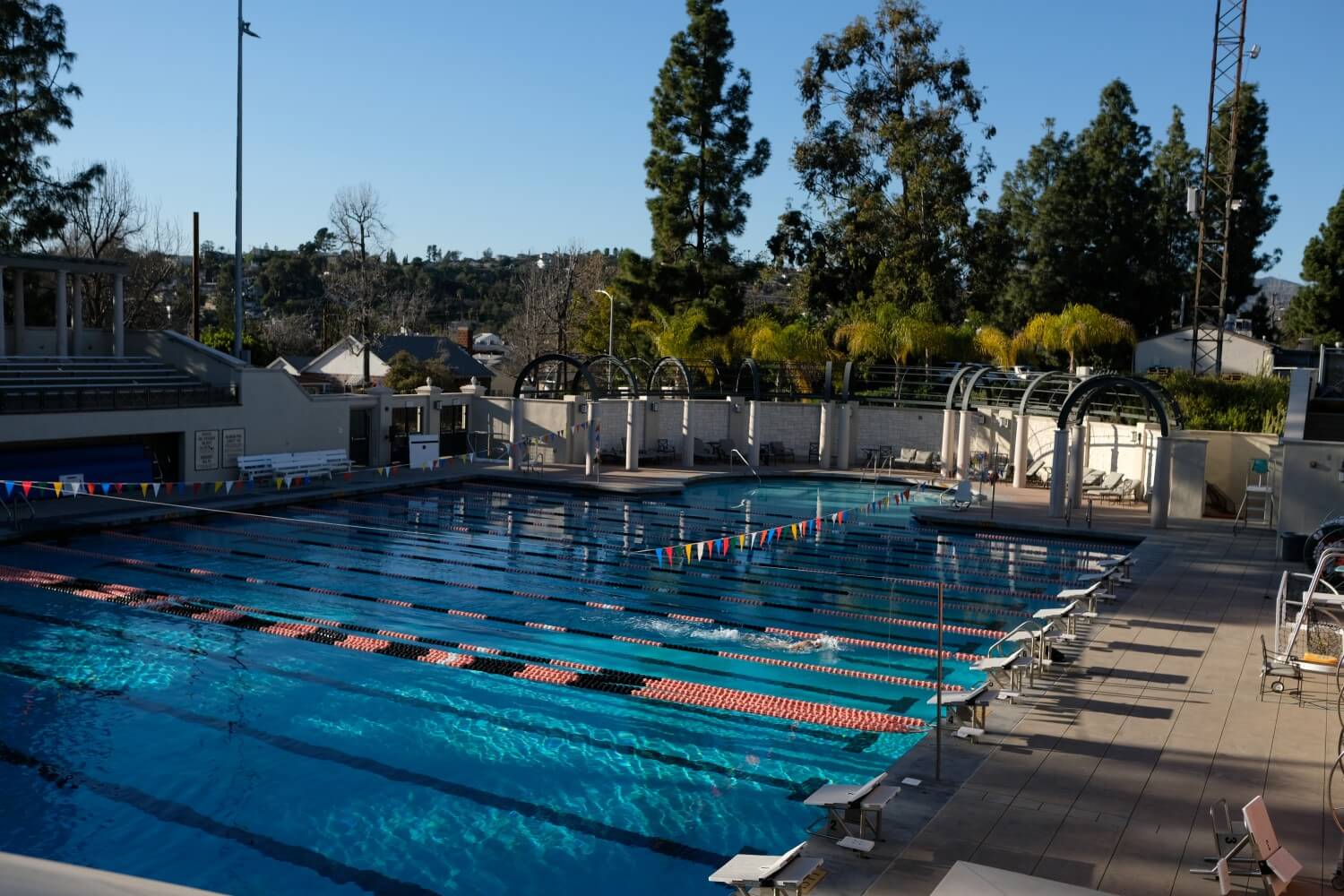
Winter and spring sports teams returned to campus almost immediately after Christmas to resume training and competition. According to Kyle Dosa (senior), a player on the men’s basketball team, the team returned Dec. 26, 2021, to prepare for competitions starting from Dec. 28, 2021. It was also around this time that national and local COVID-19 cases rose in the U.S. largely due to the highly transmissive omicron variant. Occidental experienced a COVID-19 positive rate of 5 percent since the week of Jan. 2, considerably higher compared to the Fall 2021 semester, when the rate never exceeded 0.5 percent, according to the college’s COVID-19 testing data. This upward trend in COVID-19 infections was also reflected in the sports teams, where the basketball team, for example, has had two or three players testing positive every week since returning from winter break, according to Dosa.
According to Brian Newhall, head coach for men’s basketball, 15 players on the team and all three coaches, including himself, tested positive for COVID-19 at the start of winter training in late December 2021.
“It’s like a dominos effect. The first player got it, and then we tested next week, then we find out three players got it,” Dosa said. “At that time, we were a little uncertain, we were waiting for emails from our coaches and the athletic department to see what we’re going to do, would they shut us down for a week?”
Eventually, players who tested negative for COVID-19 were allowed to continue practice, but two games with Cal Miramar University and Husson University in late December were postponed and cancelled, respectively, because of the surge of omicron, according to Dosa. According to Shanda Ness, director of athletics, the fall season had few COVID-related disruptions, with only one volleyball home game cancelled in September due to concerns on the visiting team. However, Ness said the omicron variant has presented challenges across the board this semester, and the athletics department is working with the college’s COVID Operations Group (COG) to ensure the safety of student-athletes.
Dosa said his COVID-positive teammates were placed in quarantine in Berkus Hall and the Samuelson Alumni Center. According to the Oxy Athletics COVID-19 Protocol, vaccinated athletes who tested positive for COVID-19 are required to isolate for 10 days, and must receive clearance from an athletic physician before returning to play.
“We would go pick up food and drop it off at the door, because they’re locked in there by themselves,” Dosa said. “I’d say the team did a good job supporting each other during that time.”

The swim and dive team was also affected by the rise in the Omicron variant. According to Siena Lucido (senior), a member of the swim team, the 2021-2022 season had been anything but smooth. Lucido said the swim team returned to campus Dec. 27, 2021, and in the days following their return, around six swimmers tested positive for coronavirus in a team of 50 people.
“Some of our swimmers who got [COVID-19] were very much part of the relays, and we had to change around who was going to be in the relays,” Lucido said. “For some of the meets, it may hurt us a little to be missing those swimmers, but we worked it out the best we could.”
According to Noah Nagel (senior), another member of the swim team, several team bonding activities were either postponed or cancelled to mitigate risk of spreading the coronavirus per college guidance. The team also utilized both ends of the pool during practices to avoid close contact between swimmers, something that did not happen in pre-pandemic semesters.
Track runner Amir Barkan (sophomore) estimates that around eight track members have contracted COVID-19 so far, in a team with 80 athletes. The track and field team was also unable to hold certain bonding activities, according to Eric Looby (senior), a triple jumper on the team. Looby said it is challenging to build a team culture in the absence of such activities, especially when both the sophomore and first-year classes are new to campus.
“It has been a little difficult to build a culture we’ve had in the past,” Looby said. “But it’s been cool to see in the last few weeks especially, people started to open up and the shyness is starting to go away.”
Dosa said he tried to stay positive despite the adversity brought by COVID-19 to the basketball team.
“In the bigger picture, this whole season could’ve been a loss, they could’ve cancelled the season but we’re still able to be here and play,” Dosa said.
Lucido also said beyond wins and losses, the ability to compete again after one and a half years away from the pool is more important.
“Hopefully we get some best times, but just to make it through this wacky season is the biggest accomplishment,” Lucido said.
![]()






























